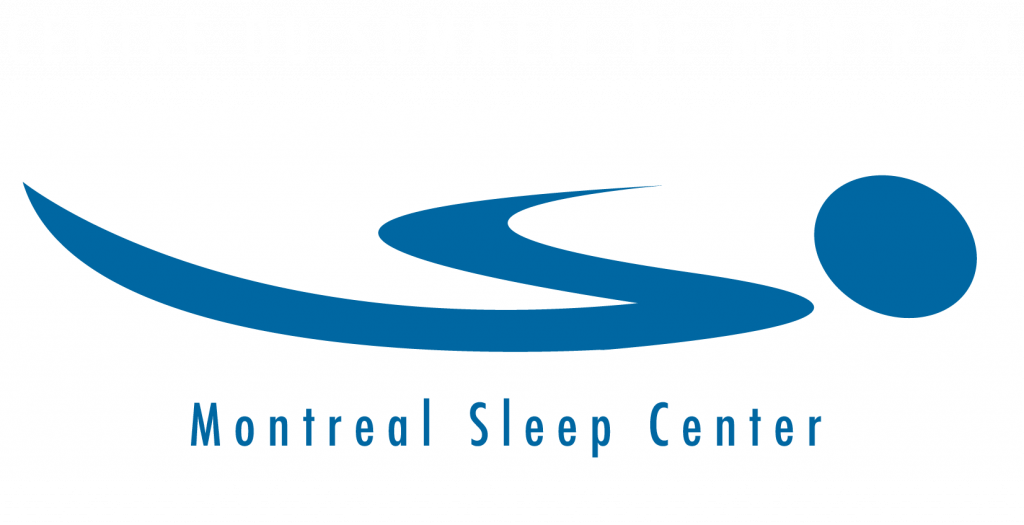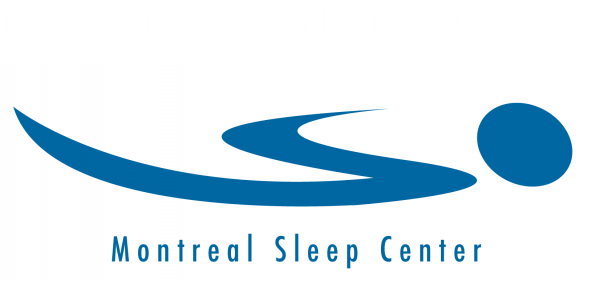Montreal Sleep Center - Sleep Apnea and Snoring Clinic
The Montreal Sleep Center specializes in the diagnosis and treatment of sleep apnea and snoring. We provide comprehensive and personalized services to resolve your sleep difficulties in a timely manner. Our laboratory and therapeutic services are a faster option than the public sector.
Symptoms of Sleep Apnea may include:
- Snoring.
- Fatigue
- Difficulty concentrating.
- High blood pressure (hypertension)
- Weight gain
- Depression
- Frequent headaches
- Dry mouth upon waking
- Decreased sexual function
- Irritability
What are the benefits of treatment?
- Improved quality and length of sleep.
- Improved energy levels and mood.
- Snoring is eliminated.
- Decreased risk of heart disease and Type 2 diabetes.
HOW CAN THE MONTREAL SLEEP CENTER HELP YOU?
To diagnose sleep apnea, you will bring a screening device home and sleep in your own bed overnight. Appointments for screening tests are normally available same or next day. Once the screening device is returned, it is sent to an analyst for evaluation. Study results are treatment options are sent to the patient with 7-10 business days. Patients who fall into the moderate or severe category for sleep apnea are recommended to undergo a trial with a CPAP machine. CPAP is a continuous positive air pressure that can alleviate symptoms of sleep apnea and snoring. CPAP is the most effective treatment option for sleep apnea and snoring because it targets the upper airway of the patient’s respiratory system.
OUR CLINIC HAS BEEN HELPING PATIENTS WITH SLEEP APNEA AND SNORING FOR OVER 15 YEARS.
CPAP
treatment
Continuous positive air pressure from the CPAP machine is one of the treatments prescribed by professionals at the Montreal Sleep Center to treat obstructive apnea. This small machine provides gentle airflow through a mask to keep the airways open. This prevents blockage and enables restorative sleep.
DIAGNOSIS OF
SLEEP APNEA AND SNORING
The Montreal Sleep Center offers you a rapid diagnostic service, the results, and recommendations of which are delivered within 7-10 business days of the exam.
Severe snoring
Have you ever wondered what causes snoring? As you enter sleep your throat muscles relax, your tongue drops back, and the airways at the back of your throat become narrow. When you breathe in, the walls of the throat begin to vibrate, which results in snoring. While snoring itself is not necessarily dangerous, it is likely to affect you and your partner’s quality of sleep. Snoring may also be a sign of sleep apnea. If you snore – you should have a sleep test.
Sleep Apnea
Sleep apnea is a common sleep disorder among adults that causes temporary respiratory arrests throughout the night. These short interruptions in breathing prevent you from getting a restful sleep and increase the likelihood of developing serious health complications if left untreated.
ARE YOU SLEEPING BADLY AND LOOKING FOR A SOLUTION?
While there is no one known cause for sleep apnea, the symptoms may worsen with certain habits. Here are some helpful habits that may improve your sleep:
- Adopting a “sleep hygiene routine” – ensure that your bedroom environment and nighttime routines are compatible with relaxation and rest.
- Eat well and exercise regularly.
- Reduce smoking.
If changing to healthy habits does not ameliorate your sleep and you would like to explore treatment options, contact The Montreal Sleep Center for a consultation.
Symptoms of sleep apnea
- Frequent nighttime awakenings.
- Chronic fatigue.
- A decrease in vigilance, concentration, and performance
- Acute irritability
- Muscular fatigue and/or jerking of the legs.
- Increased anxiety and/or depression
- Difficulty falling and staying asleep.
Contact the Montreal Sleep Center
The Montreal Sleep Center is a sleep clinic run by a team of physicians and sleep technicians. Contact one of our professionals to find out if we can help you regain a deep and regular sleep.
Frequently asked questions about sleep disorders
What are potential consequences of untreated obstructive sleep apnea?
There is a possible increase risk for high blood pressure, heart disease and heart attack, stroke, fatigue related accidents, poor quality of life.
How common is sleep apnea?
- 1 of every 5 adults has at least a mild form of sleep apnea (20%)
- 1 of every 15 adults has at least moderate sleep apnea (6.6%)
- 2-3% of children are likely to have sleep apnea
- Over 1 in 4 (26%) Canadian adults have a high risk of having or developing obstructive sleep apnea (Canadian Lung Association)
How long until I get an appointment?
Appointments are usually available same day, if not the following day.

